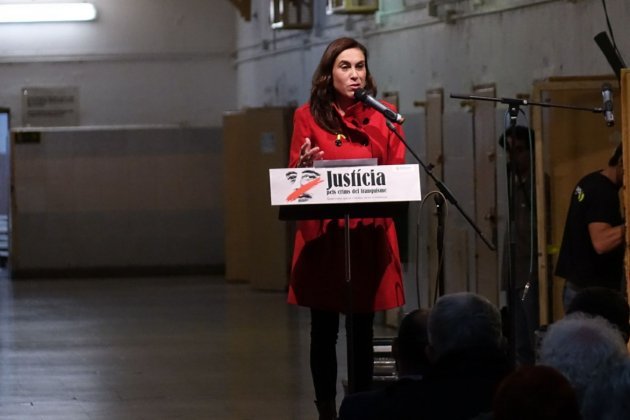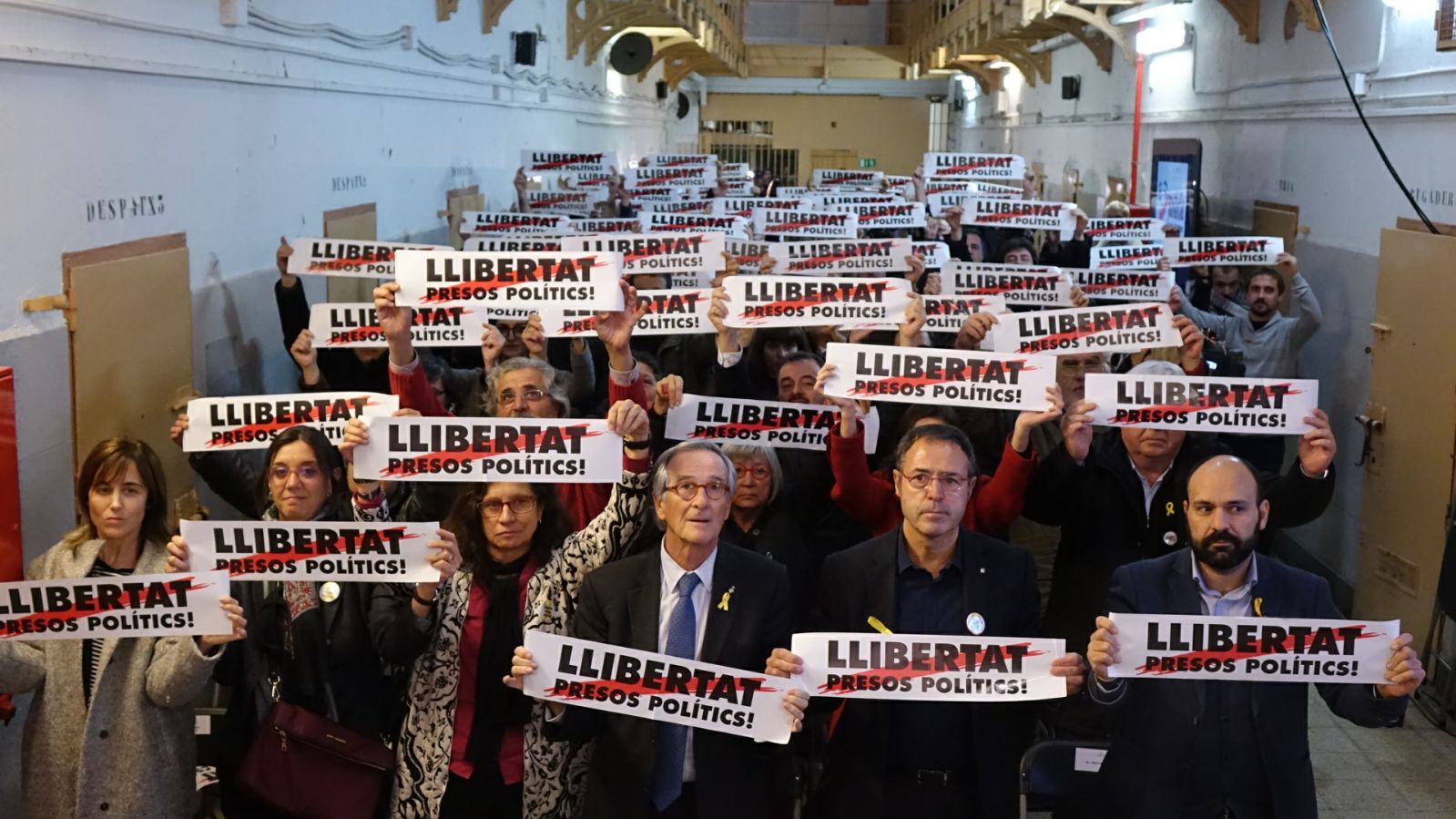For the third consecutive 20th November, the anniversary of the death of Spanish dictator Francisco Franco, pro-independence organisation Òmnium Cultural has again opened the doors of Barcelona's historic Model prison this Monday to demand justice for the crimes of Francoism. However, given the exceptional nature of the current political climate, the prison which saw the imprisonment of thousands of regime dissidents and the executions of hundreds today saw another claim: the freedom of the pro-independence political prisoners. "When you believe it's finally finishing, it starts again," they said.
Last year, on 20th November, in the prison's gallery number 4 there were, among others, the president of Òmnium, Jordi Cuixart and the Catalan Justice minister, Carles Mundó. Today they are both in prison near Madrid, in Soto del Real and Estremera respectively. Their speeches from last year were shown today. Minister Toni Comín, meanwhile, from exile in Brussels, wanted to send his support to the prisoners, who he remembers every morning and evening.

Cuixart's partner, Txell Bonet, denounced that "unfortunately, injustice is already forming part of our collective imagination" and noted that they've spent 36 nights waiting for him to return home. Despite everything, she called for the fight to continue: "When I hear the words 'shared struggles', Jordi's smile appears to me". She explained how a year before Cuixart asked her to give up her place for the number of people who wanted to now. "Now the weeks are going by and we're adding up the visits" to Soto del Real.
"42 years after the dictator's death, the president of Òmnium Cultural addresses [us] from prison because there are again political prisoners in Spain", said Marcel Mauri, the organisation's accidental leader. He described this as an "embarrassing fact which should weigh like a ton on any democrat". Mauri lamented that "42 years ago the end of the dictatorship started" but that this "wasn't the end of a Francoism which today has fewer complexes than ever". He finished with some words from Cuixart: "Now we have to fight from prisons, like 50 years ago. So let's go forwards. We'll do it again now".
In the name of the Commission for Dignity, lawyer Pilar Rebaque said that "once the dictator died, in a transition that wasn't a break but a continuation, I never thought that there would again be political prisoners". She said that "we are again an occupied country" and that "we're living in a de facto state of emergency". "Those who don't think like the regime are criminalised", said Rebaque whose father was held in the same prison for "aiding rebellion" in 1940.
Italian lawyer Fabio Marcelli, expert in international law, warned that, in Europe, "we're see very worrying phenomena, from Poland and Ukraine to the Mediterranean countries". The "ghosts" of fascism and authoritarianism, he said, haven't gone. In this context he placed the "shocking images" of the 1st October, and also the "detention of legitimate representatives" of the government. "Today democratic rights are at stake, in danger", said Marcelli, a member of the European Association of Lawyers for Democracy and Human Rights.
As a curator of the Model exhibition, the historian and vice-president of the ANC (Catalan National Assembly), Agustí Alcoberro, said that more than 13,000 political prisoners passed through the prison of whom some 1,600 left to be executed. Drawing a parallel with the present, Alcoberro said that no regime accepts the existence of political prisoners: "Franco's ministers said that there weren't political prisoners".
Representing the civil initiative En peu de pau, born after the 1st October referendum in opposition to the Spanish state's repression, Oriol de Balanzó expressed his regret that history continuously repeats itself. "My father went to Paris in '74 to see president Tarradellas in exile. Last week, I went to Brussels to see president Puigdemont with the group En peu de pau". Despite everything, he expressed gratitude that a "place of repression" like the Model prison "has been recovered and handed over to the public".
The event was attended by political leaders like the former mayor of Barcelona Xavier Trias, ERC's spokesperson in the city council Alfred Bosch and CUP deputy Gabriela Serra. The evening was livened up by musical performances by Quico Pi de la Serra, Mateu Xurí i Maribel Servera.

